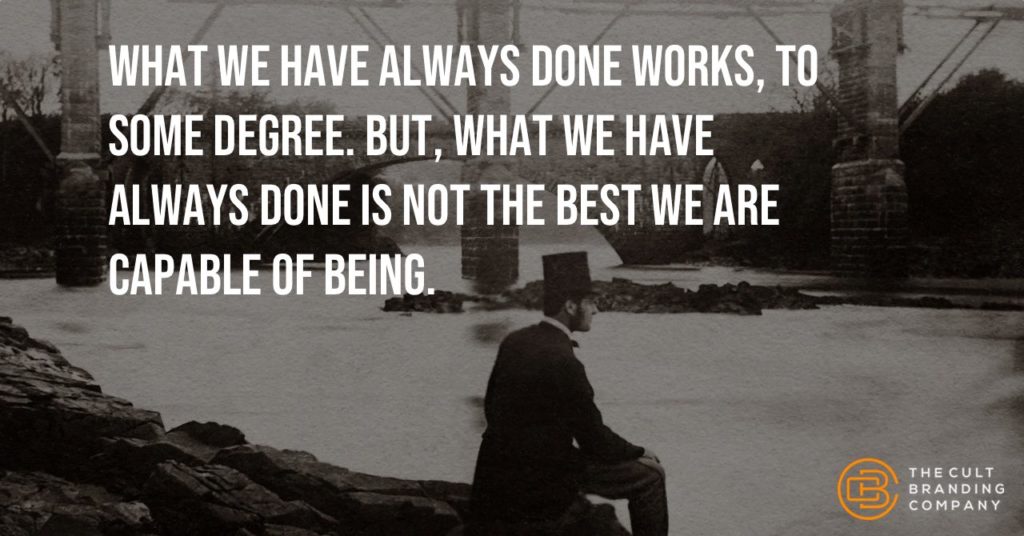
It is important that we know where we come from, because if you do not know where you come from, then you don’t know where you are, and if you don’t know where you are, then your don’t know where you’re going. And if you don’t know where you’re going, you’re probably going wrong.Terry Pratchett1
As humans, we have the tendency to do what we have always done. What we have always done works, to some degree. But, what we have always done is not the best we are capable of being.
Over time, we develop ways of behaving and reacting. These ways are habitual because they served us at some point, in some situation. And, they are often unconscious: it’s just the way we do things. Yet, often these types of behaviors are not suited for the situations we employ them in.
We get caught up in the constant struggle to keep doing, instead of engaging in the practice of consistently becoming better.
To become better, we have to reflect on who we are, where we are, and where we want to go. And, we have to set aside time to do that.
Setting aside time allows us the reflection that we can never get in the midst of doing. You can refine your values, catch yourself making biased decisions, and work out what’s really going on. It also allows you to take on different points of view and see how other people would approach the situation, giving you a broader perspective. And, it allows you the opportunity to become emotionally detached and see the situation more objectively.
The best way to do this is to keep a journal and spend time every day reflecting in order to improve. You don’t have to set aside a lot of time: five minutes is better than no minutes.
A great question to start with is: why did I choose to lead?2
What is it about leading people that gives your life meaning? By understanding your motivation to lead, you can connect more deeply with your own values and use them to guide you. Doing so will lead you to more fully self-actualize.3 And, when you know yourself, you become more aware of the needs of others—making you a stronger leader.4
Reflection isn’t about making a big change. It’s about consistently making small changes.
When you become a little bit better every day, even just 1%, you become a lot better over time. 5 And, you’ll be better able to respond to whatever situation you may face.
_______________________
- Terry Pratchett, I Shall Wear Midnight, 2010. ↩
- Leonard J. Marcus, Eric J. McNulty, Joseph M. Henderson, and Barry C. Dorn, You’re It: Crisis, Change, and How to Lead When It Matters Most, 2019. ↩
- Abraham H. Maslow, Motivation and Personality, 1954. ↩
- James MacGregor Burns, Leadership, 1978. ↩
- James Clear, Atomic Habits: An Easy & Proven Way to Build Good Habits and Break Bad Ones, 2018. ↩
